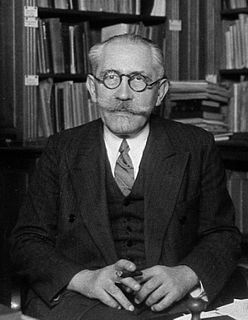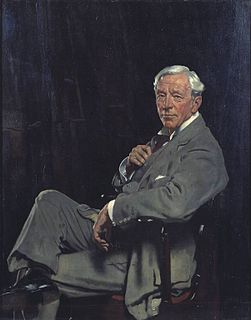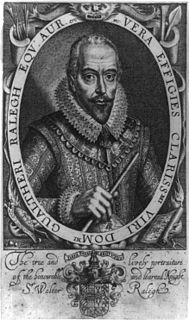This article does not cite any sources .(April 2015) (Learn how and when to remove this template message) |
This article does not cite any sources .(April 2015) (Learn how and when to remove this template message) |

Harry Bateman FRS was an English mathematician.
Carl Hamilton Browning LLD FRS FRSE (1881–1973) was a Scottish bacteriologist and immunologist. He is especially remembered for his brief but important work in Germany with Paul Ehrlich. He discovered the therapeutic qualities of acridine dyes.
David William Dye FRS was an English physicist.

David Hilbert was a German mathematician and one of the most influential and universal mathematicians of the 19th and early 20th centuries. Hilbert discovered and developed a broad range of fundamental ideas in many areas, including invariant theory, calculus of variations, commutative algebra, algebraic number theory, the foundations of geometry, spectral theory of operators and its application to integral equations, mathematical physics, and foundations of mathematics.

Paul Langevin was a French physicist who developed Langevin dynamics and the Langevin equation. He was one of the founders of the Comité de vigilance des intellectuels antifascistes, an antifascist organization created in the wake of the 6 February 1934 far right riots. Langevin was also president of the Human Rights League (LDH) from 1944 to 1946 – he had just recently joined the French Communist Party. Being a public opponent against fascism in the 1930s resulted in his arrest and consequently he was held under house arrest by the Vichy government for most of the war.

Richard Friedrich Johannes Pfeiffer FRS was a German physician and bacteriologist. Pfeiffer was born in Treustädt, Province of Posen, and died in Bad Landeck.

Sir William Symington McCormick was a Scottish scholar and educational administrator.
Baron Wrottesley, of Wrottesley in the County of Stafford, is a title in the Peerage of the United Kingdom. It was created in 1838 for Sir John Wrottesley, 9th Baronet. He was a Major-General in the Army and also represented Lichfield, Staffordshire and Staffordshire South in House of Commons. He was succeeded by his son, the second Baron. He was President of the Royal Astronomical Society as well as of the Royal Society. His son, the third Baron, held junior positions in the first two Liberal administrations of William Ewart Gladstone. He was succeeded by his eldest son, the fourth Baron. On his death in 1962 the titles passed to his nephew, the fifth Baron who was the only son of the Hon. Walter Bennet Wrottesley, youngest son of the third Baron. In 1941 he married into the Noble House of Stratford, from which all subsequent Barons Wrottesley descend, and in 1963 he sold the Staffordshire estate. As of 2010 the titles are held by the fifth Baron's grandson, the sixth Baron, who succeeded in 1977. He is the only son of the Hon. Richard Francis Gerard Wrottesley, second son of the fifth Baron.

The Royal Society of Edinburgh is Scotland's national academy of science and letters. It is a registered charity, operating on a wholly independent and non-party-political basis and providing public benefit throughout Scotland. It was established in 1783. As of 2017, it has more than 1,660 Fellows.

Clanricarde, also known as Mac William Uachtar or the Galway Burkes, were a partly Gaelicised branch of the Norman originated House of Burke in Ireland. The term was important in Ireland from the 13th to the 20th centuries.

The Lord Warden of the Stannaries used to exercise judicial and military functions in Cornwall, England, in the United Kingdom, and is still the official who, upon the commission of the monarch or Duke of Cornwall for the time being, has the function of calling a Stannary Parliament of tinners. The last Stannary Parliament convened by a Lord Warden of the Stannaries sat in 1753.
The Bannatyne Club, named in honour of George Bannatyne and his famous anthology of Scots literature the Bannatyne Manuscript, was a text publication society founded by Sir Walter Scott to print rare works of Scottish interest, whether in history, poetry, or general literature. It printed 116 volumes in all. It was dissolved in 1861.
The Chief Baron of the Exchequer was the first "baron" of the English Exchequer of Pleas. "In the absence of both the Treasurer of the Exchequer or First Lord of the Treasury, and the Chancellor of the Exchequer, it was he who presided in the equity court and answered the bar i.e. spoke for the court." Practically speaking, he held the most important office of the Exchequer of Pleas.

Clan Lindsay is a Lowland Scottish clan.
The High Sheriff of Devon is the Queen's representative for the County of Devon, a territory known as his/her bailiwick. Selected from three nominated people, they hold his office over the duration of a year. They have judicial, ceremonial and administrative functions and executes High Court Writs. The office historically was "Sheriff of Devon", changed in 1974 to "High Sheriff of Devon".

This is a list of Sheriffs and High Sheriffs of Wiltshire.
This is a list of the Sheriffs and High Sheriffs of Staffordshire.
This is a list of High Sheriffs of Carmarthenshire. Carmarthenshire was originally created by the Statute of Rhuddlan in 1284. It became an administrative county in 1889 with a county council following the Local Government Act 1888. Under the Local Government Act 1972, the administrative county of Carmarthenshire was abolished on 1 April 1974 and the area of Carmarthenshire became three districts within the new county of Dyfed : Carmarthen, Dinefwr and Llanelli. Under the Local Government (Wales) Act 1994, Dyfed was abolished on 1 April 1996 and the three districts united to form a unitary authority which had the same boundaries as the original Carmarthenshire but remaining in the shrievalty of Dyfed.
This is a list (presently incomplete) of lawyers who held the rank of serjeant-at-law at the Irish Bar.
The Sheriff of Dublin City was the Sovereign's judicial representative in Dublin. Initially an office for lifetime, assigned by the Sovereign, the Sheriff became an annual appointment following the Provisions of Oxford in 1258. Besides his judicial importance, the sheriff had ceremonial and administrative functions and executed High Court Writs.
The 1871 Birthday Honours were appointments by Queen Victoria to various orders and honours to reward and highlight good works by citizens of the British Empire. The appointments were made to celebrate the official birthday of the Queen, and were published in The London Gazette on 20 May 1871.